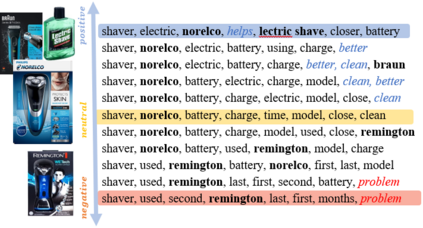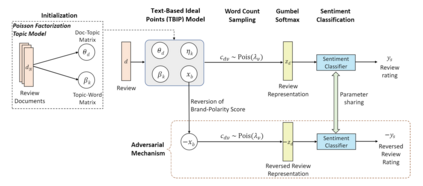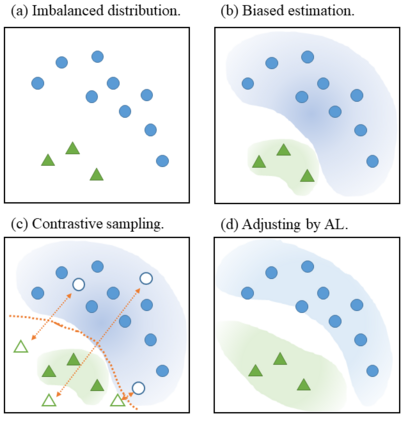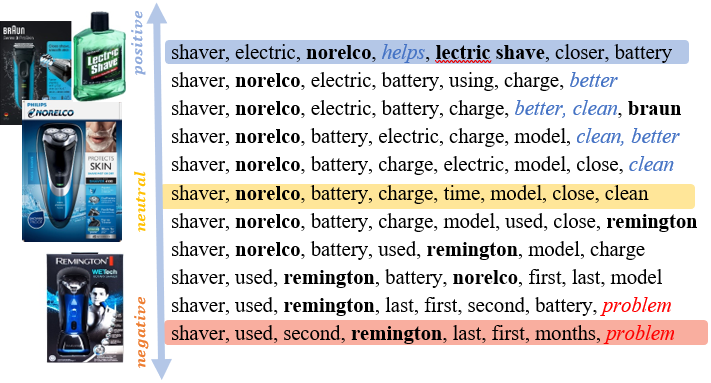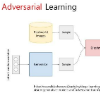In this paper, we propose the Brand-Topic Model (BTM) which aims to detect brand-associated polarity-bearing topics from product reviews. Different from existing models for sentiment-topic extraction which assume topics are grouped under discrete sentiment categories such as `positive', `negative' and `neural', BTM is able to automatically infer real-valued brand-associated sentiment scores and generate fine-grained sentiment-topics in which we can observe continuous changes of words under a certain topic (e.g., `shaver' or `cream') while its associated sentiment gradually varies from negative to positive. BTM is built on the Poisson factorisation model with the incorporation of adversarial learning. It has been evaluated on a dataset constructed from Amazon reviews. Experimental results show that BTM outperforms a number of competitive baselines in brand ranking, achieving a better balance of topic coherence and uniqueness, and extracting better-separated polarity-bearing topics.
翻译:在本文中,我们提议了“品牌-热量模型”,目的是从产品审查中发现与品牌有关的极点主题,不同于现有的情绪-热量提取模型,这些模型假定主题分为“积极”、“消极”和“神经”等离散的情绪类别,BTM能够自动推断出与品牌有关的真实价值的情绪分数,产生细微的感-热量专题,在特定主题(例如“分化”或“激化”)下,我们可以观察到持续变化的文字变化,而相关的情绪则从负向正。BTM建在Poisson乘以对抗性学习的分化模型上,在亚马孙审查所构建的数据集上进行了评估。实验结果表明,BTM在品牌排名中超越了若干竞争性基线,在主题一致性和独特性方面实现了更好的平衡,并提取了更分离的极地性主题。

